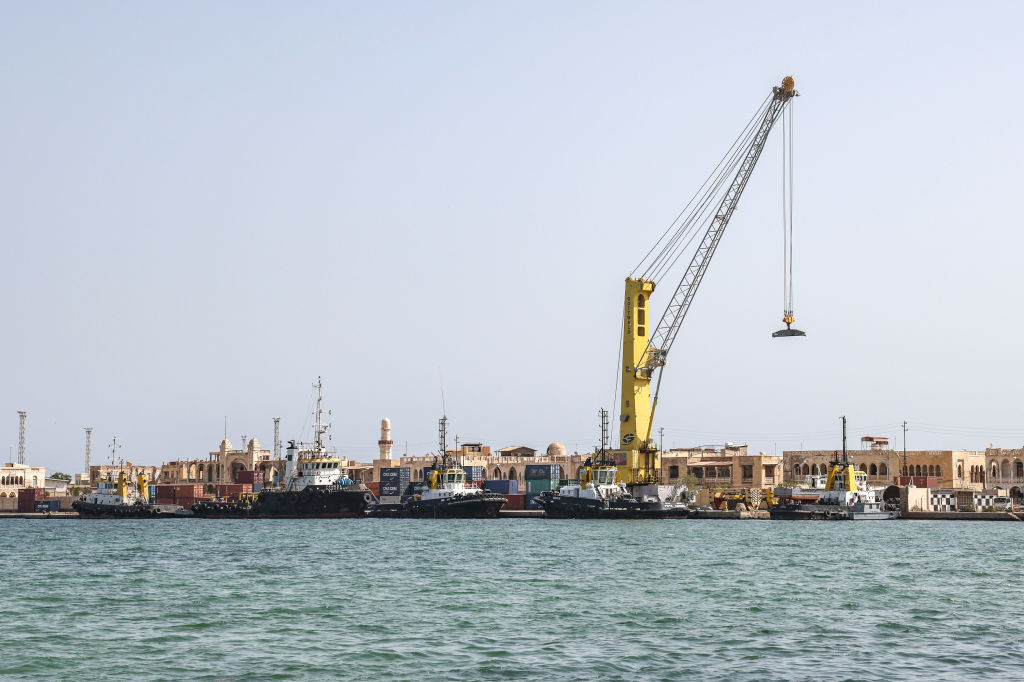ADF STAFF
Ethiopian Prime Minister Abiy Ahmed’s call for direct port access on the Red Sea has Horn of Africa observers concerned about a new conflict in the battle-scarred region.
Ethiopia lost direct access to the sea in 1993 when Eritrea gained independence after almost 30 years of war. Direct access to the coast would allow Ethiopia to develop its economy, strengthen its Navy and exert regional influence.
“What I wanted to talk to you about today is regarding water; regarding the Red Sea water,” Abiy said in a speech to party officials in mid-October. “We can see that only a narrow strip of land separates us from the sea. It is crucial for the present leaders of Somalia, Djibouti, Eritrea and Ethiopia to engage in discussions, not just for the present, but to ensure lasting peace.”
The issue needs to be addressed “to prevent future generations from resorting to conflict,” Abiy said, according to the Ethiopian News Agency. He said Ethiopia is not focused on a specific port but “an accessible gateway” that could be bought, leased or mutually agreed upon.
Eritrea’s Ministry of Information responded with a statement saying there have been “numerous and excessive” discussions regarding access to the sea.
“The Government of Eritrea repeatedly reiterates that it will not, as ever, be drawn into such alleys and platforms,” the statement added. “The [government] further urges all concerned not to be provoked by these events.”
Somalia’s State Minister of Foreign Affairs Ali Omar said territorial issues are “not open for discussion.”
Before Eritrea’s independence, Ethiopia accessed the coast mostly via the ports of Massawa and Assab. Ethiopia now imports nearly 90% of its goods via the port of Djibouti, according to The East African newspaper. Djibouti joined Eritrea and Somalia in rebuffing Abiy’s appeal.
“Our two countries have always maintained strong, friendly relations,” Alexis Mohamed, a senior advisor to Djiboutian President Ismail Omar Guelleh, said in a report by The Maritime Executive. “But you should also know that Djibouti is a sovereign country, and therefore, our territorial integrity is not questionable, neither today nor tomorrow.”
Abiy has long emphasized that Ethiopia’s lack of direct access to the Red Sea limits its international trade opportunities. Its trade with the world totaled $19.2 billion last year — up 4.3% from a year earlier, according to data compiled by Bloomberg.
The lack of direct access to harbors “prevents Ethiopia from holding the place it ought to have,” Abiy said. “If this is not going to happen, there will be no fairness and justice and if there is no fairness and justice, it’s a matter of time, we will fight.”
Befekadu Hailu, co-founder of Ethiopia’s Center for the Advancement of Rights and Democracy, a think tank, said the situation raises the risk of war.
“Ethiopians cannot afford any more conflict,” Befekadu told Bloomberg.
Journalist Martin Plaut wrote recently that relations between Eritrea and Ethiopia have been deteriorating for at least a year. While Abiy’s comments on direct port access didn’t help, Ethiopian officials are aggrieved over the presence of Eritrean troops in Ethiopia’s Tigray region.
“Abiy and [Eritrean] President Isaias [Afwerki] have been strong allies,” Plaut wrote on his website martinplaut.com. “They could still rekindle their friendship and find a negotiated path that allows Addis to gain a sea outlet and manage peace in Tigray better. That would entail an honest dialogue with each other, not sniping at each other.”
Another war between Eritrea and Ethiopia would be “catastrophic and must be avoided,” Plaut wrote.

